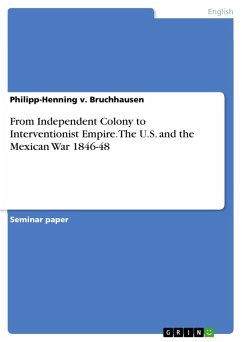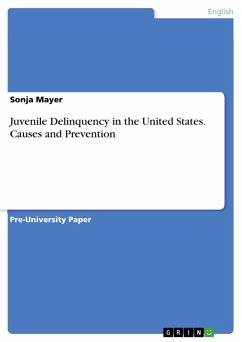Seminar paper from the year 2016 in the subject English Language and Literature Studies - Culture and Applied Geography, grade: 1,3, Ernst Moritz Arndt University of Greifswald (anglistik), course: PS America: 18th Century Ideals, 21st-Century Reality, language: English, abstract: The Mexican War from 1846-1848, is one of the more obscure, some would even say"forgotten" wars, out of the long list of international conflicts, the United States were party to. It marks the first time though, that America as an independent nation invaded another independent nation, the multitude of armed conflicts with the native Indians and the former colonial powers since the Revolutionary War notwithstanding. While the annexation of Texas and the following war, leading to the annexation of the whole modern south west of the USA, might have seemed to be the preordained outcome to most contemporary observers of the time, like John L. O¿Sullivan, who actually coined the term Manifest Destiny in 1845, it was by no way unavoidable. Actually, a couple of thousand more votes for the moderate Whig Party candidate Henry Clay in 1844, might have turned the war a lot less bloody, if war had erupted at all. But the close victory of (D) James K. Polk, who actually campaigned on the annexation of Texas without Mexicös approval, almost assured a bitter conflict. Alas, the most crucial reason for the outbreak of the Mexican War, was not the Anglo-Saxon¿s belief in Manifest Destiny, and the subsequent ruthless push westwards, but Mexicös weakness to resist it. While the two freshly independent countries were posed to clash over Texas¿s western and southern boundaries, a war on this scale could have easily been averted, if not for President Polk¿s diplomatic ineptitude, and the Mexican¿ elites¿ willingness to sacrifice several ten thousand people just to demonstrate defiance and to keep their face.
Dieser Download kann aus rechtlichen Gründen nur mit Rechnungsadresse in A, B, BG, CY, CZ, D, DK, EW, E, FIN, F, GR, HR, H, IRL, I, LT, L, LR, M, NL, PL, P, R, S, SLO, SK ausgeliefert werden.









